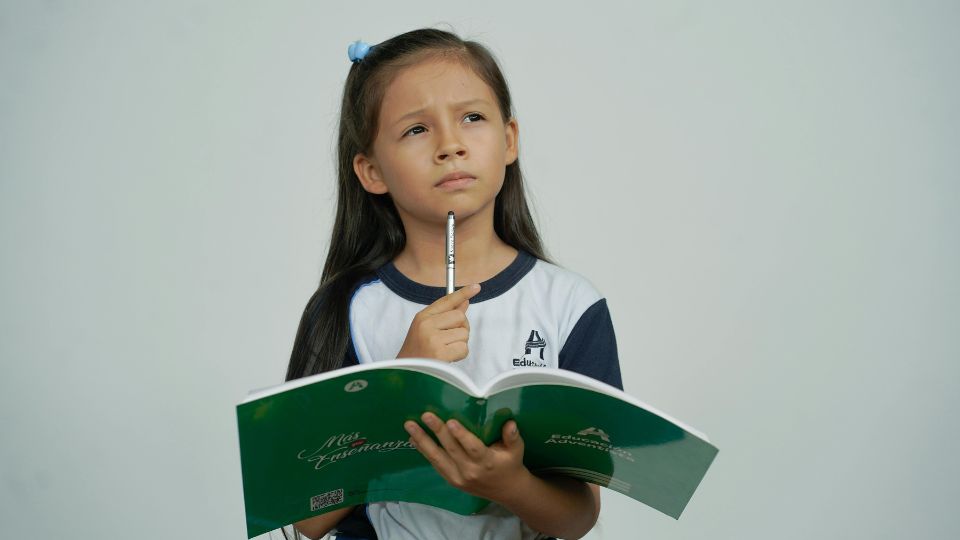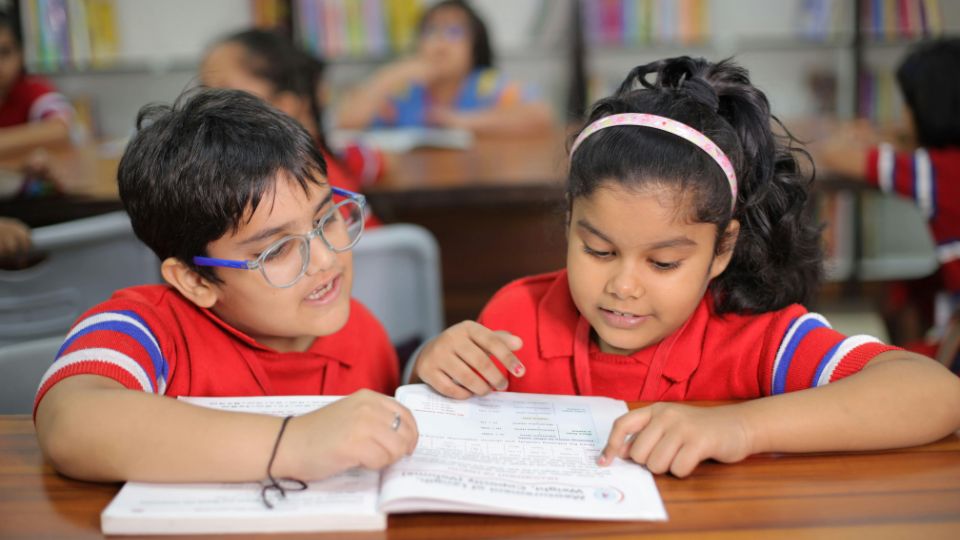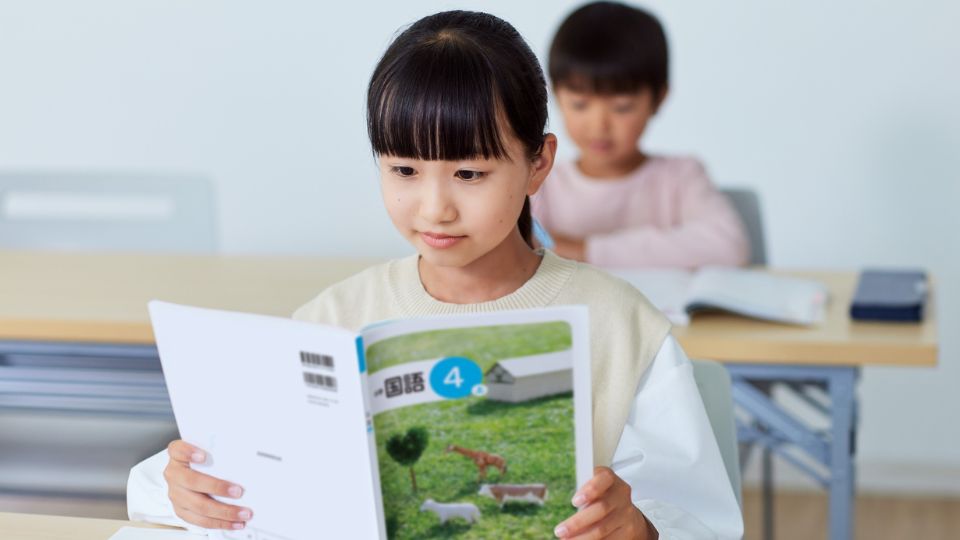Celebrating International Literacy Day and Its Impact on Global Education
Every September 8th, the world unites to celebrate International Literacy Day, a powerful reminder of the fundamental role literacy plays in unlocking potential and fostering education. This day not only honors the progress made in improving literacy rates across the globe but also highlights the challenges that still lie ahead. From empowering individuals to create better lives for themselves to driving community development and economic growth, literacy is a key lever in shaping our future.
As we reflect on the achievements and ongoing struggles in global education, we are called to action, recognizing that reading and writing are not just skills but the foundation of informed societies. Join us as we explore the profound impact of International Literacy Day on education worldwide, the initiatives transforming lives, and the importance of ensuring that every individual has access to the tools needed for success in an increasingly complex world.
The History and Significance of International Literacy Day
International Literacy Day, celebrated annually on September 8th, was established by UNESCO in 1967 to remind the international community of the importance of literacy for individuals, communities, and societies. The day was created to promote literacy as a driver for sustainable development, peace, and prosperity. Literacy is not merely about reading and writing but encompasses a broader spectrum of skills, including critical thinking, problem-solving, and the ability to engage with technology and other modern tools. The significance of this day lies in its ability to spotlight the transformative power of literacy and mobilize global efforts towards eradicating illiteracy.
The establishment of International Literacy Day was a response to the glaring disparities in education and literacy rates across the world. In the mid-20th century, many countries were grappling with high illiteracy rates, which hindered socio-economic development and perpetuated cycles of poverty. By dedicating a day to literacy, UNESCO (UNESCO’s International Literacy Day) aimed to galvanize international cooperation and promote policies that prioritize education and lifelong learning. Over the years, International Literacy Day has grown in scope and impact, serving as a platform for governments, organizations, and communities to showcase their literacy initiatives, share best practices, and advocate for the rights of individuals to quality education.

The significance of International Literacy Day extends beyond raising awareness to fostering a culture of learning and knowledge-sharing. It serves as a reminder that literacy is a human right and a foundation for other fundamental rights. As we celebrate this day, we are reminded of the collective responsibility to ensure that everyone, regardless of their background or circumstances, has access to education and the opportunity to develop the skills needed to lead fulfilling lives. This global observance challenges us to think critically about the barriers to literacy and to work collaboratively towards creating a more literate and equitable world.
Global Literacy Rates: Current Statistics and Trends
Global literacy rates have seen considerable improvement over the past few decades, yet significant challenges remain. According to UNESCO, the global literacy rate for adults (aged 15 and above) stood at 86% in 2020. While this represents a substantial increase from previous decades, it still means that 14% of the world’s adult population – approximately 773 million people – are unable to read and write. The situation is even more critical for young people, with an estimated 102 million youth lacking basic literacy skills. These statistics highlight the urgent need for continued efforts to address literacy gaps and ensure equitable access to education.
The disparities in literacy rates are starkly evident when considering regional and gender differences. Sub-Saharan Africa and South Asia have some of the lowest literacy rates globally, with significant portions of their populations unable to read or write. Gender inequality further exacerbates the problem, with women and girls disproportionately affected. In many regions, cultural, socio-economic, and institutional barriers prevent girls from accessing education, leading to higher illiteracy rates among females. Addressing these disparities requires targeted interventions that consider the unique challenges faced by different communities and promote inclusive and equitable education for all.
Trends in global literacy also reveal the impact of digital transformation on education. The increasing integration of technology in learning processes presents both opportunities and challenges. On one hand, digital literacy has become an essential skill in the 21st century, and access to technology can enhance learning outcomes and bridge educational gaps. On the other hand, the digital divide – the gap between those who have access to digital technologies and those who do not – can exacerbate existing inequalities. Ensuring that all individuals have the tools and skills to navigate the digital world is crucial for achieving comprehensive literacy and empowering people to participate fully in modern society.
The Role of Literacy in Economic Development
Literacy is a cornerstone of economic development, playing a critical role in building human capital, fostering innovation, and driving productivity. A literate population is better equipped to acquire the knowledge and skills needed for the workforce, adapt to changing economic conditions, and contribute to the growth and development of their communities. Literacy enhances individual employability, enabling people to secure better jobs, earn higher incomes, and improve their standards of living. As such, investment in literacy and education is a strategic imperative for sustainable economic development.
The relationship between literacy and economic development is evident in the positive correlation between literacy rates and gross domestic product (GDP) per capita. Countries with higher literacy rates tend to have stronger economies, as a skilled and educated workforce drives innovation, attracts investment, and increases productivity. Literacy also contributes to economic diversification by enabling individuals to pursue a wider range of occupations and entrepreneurial activities according to World Bank’s research on literacy and economic growth. This diversity is essential for building resilient economies that can withstand economic shocks and adapt to changing global dynamics.

Moreover, literacy has a multiplier effect on economic development, as educated individuals are more likely to invest in the education of their children, creating a virtuous cycle of learning and growth. Literate parents are better equipped to support their children’s education, advocate for quality schooling, and foster a culture of learning within their families. This intergenerational transfer of knowledge and skills contributes to long-term economic development and social mobility. By prioritizing literacy and education, societies can unlock the full potential of their citizens and create a foundation for inclusive and sustainable growth.
Literacy and Its Impact on Health and Well-being
Literacy is intricately linked to health and well-being, influencing individuals’ ability to make informed decisions about their health, access healthcare services, and adopt healthy behaviors. Health literacy, a crucial aspect of overall literacy, refers to the ability to understand and use health information to make decisions about one’s health and healthcare. Individuals with higher literacy levels are better able to comprehend medical instructions, navigate healthcare systems, and engage in preventive health practices. As a result, they are more likely to experience better health outcomes and a higher quality of life.
The impact of literacy on health is particularly significant in addressing public health challenges and reducing health disparities. For example, literate individuals are more likely to be aware of and seek timely medical attention for illnesses, adhere to treatment regimens, and adopt healthy lifestyles. Literacy also plays a critical role in maternal and child health, as educated mothers are more likely to access prenatal care, practice proper nutrition, and ensure their children receive immunizations and medical care. By enhancing health literacy, communities can improve health outcomes, reduce the burden of disease, and promote overall well-being.
Furthermore, literacy contributes to mental health and emotional well-being by providing individuals with the skills to cope with stress, build resilience, and access support networks. Reading and writing can serve as therapeutic activities, offering a means of expression, reflection, and connection. Literate individuals are better equipped to seek help for mental health issues, engage in self-care practices, and participate in social and community activities that promote mental well-being. By fostering literacy, societies can create environments that support holistic health and empower individuals to lead healthy and fulfilling lives.
Initiatives and Organizations Promoting Literacy Worldwide
Numerous initiatives and organizations around the world are dedicated to promoting literacy and improving access to education. These efforts range from grassroots community programs to large-scale international initiatives, each playing a vital role in advancing literacy and fostering a culture of learning. Organizations such as UNESCO, UNICEF, and the World Literacy Foundation are at the forefront of global literacy efforts, working to address barriers to education and support innovative solutions for improving literacy rates.
UNESCO’s Global Education Monitoring (GEM) Report is a key initiative that tracks progress towards global education targets, including literacy. The report provides valuable data and insights that inform policy decisions and highlight areas in need of attention. UNESCO also supports various literacy programs, such as the Literacy Initiative for Empowerment (LIFE), which focuses on improving literacy in countries with high illiteracy rates. By providing technical assistance, capacity-building, and advocacy, UNESCO helps countries develop effective literacy strategies and achieve sustainable literacy outcomes.
Non-governmental organizations (NGOs) and community-based initiatives also play a crucial role in promoting literacy. Organizations like Room to Read, Pratham, and Worldreader focus on providing access to quality education and learning resources for children in underserved communities. These organizations implement a range of programs, including building libraries, distributing books, training teachers, and developing digital learning platforms. By addressing the specific needs of different communities and leveraging local resources, these initiatives create meaningful and lasting impact on literacy rates and educational outcomes.
Celebrating International Literacy Day: Events and Activities
International Literacy Day is celebrated worldwide through a variety of events and activities that raise awareness about the importance of literacy and promote a culture of reading and learning. These celebrations often involve collaborations between governments, educational institutions, NGOs, and community organizations. Events range from literacy campaigns and workshops to public readings, book fairs, and cultural performances, all aimed at engaging communities and highlighting the transformative power of literacy.
In many countries, International Literacy Day is marked by special ceremonies and award programs that recognize the achievements of individuals and organizations in promoting literacy. These awards celebrate innovative literacy programs, outstanding educators, and community leaders who have made significant contributions to improving literacy rates. By honoring these achievements, International Literacy Day serves as an inspiration and a call to action for others to join the global effort to promote literacy.
Educational institutions often organize activities such as reading marathons, storytelling sessions, and writing competitions to engage students and foster a love for reading and learning. Libraries and community centers may host workshops on literacy skills, digital literacy, and lifelong learning, providing valuable resources and support for individuals of all ages. These events not only celebrate the joy of reading but also emphasize the importance of literacy in personal and social development.
How to Get Involved in Promoting Literacy
Promoting literacy is a collective responsibility, and there are many ways individuals can get involved and make a difference. Volunteering with literacy programs and organizations is a great way to contribute time and skills to support literacy initiatives. Volunteers can engage in activities such as tutoring, mentoring, organizing reading clubs, and assisting with literacy events. By sharing their knowledge and enthusiasm for learning, volunteers can inspire others and help build a more literate community.
Advocacy is another important way to promote literacy. Individuals can raise awareness about literacy issues by participating in campaigns, sharing information on social media, and engaging in discussions about the importance of literacy. By advocating for policies that prioritize education and address barriers to literacy, individuals can influence decision-makers and contribute to systemic change. Supporting initiatives that provide access to books, learning materials, and educational opportunities is also crucial for promoting literacy, UNICEF’s strategies for improving literacy rates.

Donating to literacy organizations and programs is another effective way to support literacy efforts. Financial contributions can help fund the development of educational resources, the training of teachers, and the implementation of literacy programs in underserved communities. Donations of books, educational materials, and technology can also make a significant impact. By investing in literacy, individuals can help create opportunities for others to learn, grow, and thrive.
Challenges Facing Global Literacy Efforts
Despite significant progress in improving literacy rates, numerous challenges continue to hinder global literacy efforts. One of the primary challenges is the lack of access to quality education, particularly in low-income and rural areas. In many regions, schools are under-resourced, with inadequate infrastructure, insufficient learning materials, and a shortage of trained teachers. These barriers prevent children from receiving a quality education and limit their opportunities to develop literacy skills.
Socio-economic factors also play a significant role in perpetuating illiteracy. Poverty, child labor, and socio-cultural norms can prevent children from attending school and accessing educational opportunities. In many cases, families may prioritize short-term economic needs over education, leading to high dropout rates and low literacy levels. Addressing these socio-economic barriers requires comprehensive strategies that provide financial support, social protection, and community engagement to ensure that all children have the opportunity to learn.
The digital divide is another critical challenge in promoting literacy in the modern world. Access to technology and digital literacy skills are increasingly important for education and employment. However, many communities, particularly in developing countries, lack access to digital devices, internet connectivity, and digital literacy training. This gap exacerbates existing inequalities and hinders efforts to improve literacy rates. Bridging the digital divide requires investment in digital infrastructure, affordable access to technology, and targeted digital literacy programs.
Conclusion: The Future of Literacy and Education
As we celebrate International Literacy Day, it is important to recognize the progress made in improving literacy rates and the challenges that remain. Literacy is a fundamental human right and a cornerstone of education, economic development, and social well-being. Ensuring that every individual has access to quality education and the opportunity to develop literacy skills is essential for creating a more equitable and prosperous world.
The future of literacy and education depends on our collective efforts to address barriers to literacy and promote inclusive and equitable education for all. By investing in education, supporting literacy initiatives, and advocating for policies that prioritize learning, we can create opportunities for individuals to achieve their full potential. The integration of technology and digital literacy in education also presents new opportunities for enhancing learning outcomes and bridging educational gaps.
Ultimately, literacy is about empowering individuals to think critically, engage with the world, and contribute to their communities. As we look to the future, let us commit to promoting literacy and education for all, recognizing that literacy is the foundation of informed societies and the key to a brighter, more inclusive future.





